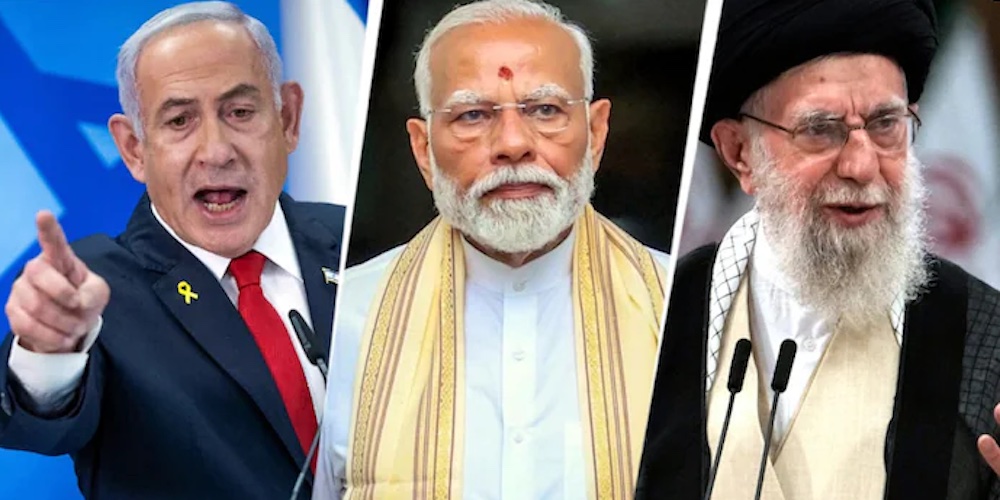India in the middle of a diplomatic bind between Iran and Israel

After the 2023 horrific attacks by Hamas on Israel, the war clouds in the region have only gotten worse over time. Israel and its Prime Minister Benjamin Netanyahu seem to be in no mood to go in for a ceasefire. Worse still, Iran has also become more entangled with the conflict. For India, which has a large Indian diaspora, working and living in the region, this has become a diplomatic headache.
For India, the trouble is that it has maintained excellent ties with all players in this conflict. From one perspective, it is nothing short of a diplomatic achievement for India that it enjoys good relations with Israel, Iran, the United Arab Emirates, Saudi Arabia and Oman, as with other countries in the Middle East region.
Iran and Israel have always treated the other with animosity and for most nations including India, the way out was to treat both relations in a separate fashion. While the relationship with Iran is older and historical, the ties with Israel have warmed up considerably in these last ten years under the leadership of Prime Minister Narendra Modi. Further, the fact that Modi and Netanyahu seem to share great personal bonhomie has helped strengthen the ties.
Even after the terrorist attacks of Oct 7 by Hamas, India walked the middle path, very carefully. While it criticized Hamas for its actions, and supported Israel’s right to self-defense, India in the same breath also supported the Palestinian cause and the two-state solution for peace in the region. On another parallel, India has continued to maintain the visits and ties with Iran.
But as the conflict widens and as the hostilities between Iran and Israel increase, the question is whether India will be able to keep treading this middle walk or at some point be forced to take a clearer stand in the favor of one over the other.

India’s MEA has time and again issued a travel advisory, urging Indian citizens to avoid non-essential travel to the region.
For India, the worst-case scenario is an all-out war between Iran and Israel. But with each passing day, the world and West Asia seems to be getting closer to that possibility. For India, which has today positioned itself as an emerging global player, it is also important that it is seen to be an active player in the region and ideally a peace maker between warring factions. This is not something India is new to. In the ongoing Russia-Ukraine conflict, India has had to manoeuvre its position carefully. While Russia is an old friend and a trusted supplier of arms; Ukraine has the backing of the United States and the western world which India has carefully cultivated in the last decade. India has cleverly positioned itself as a potential host of a Peace Summit in this conflict.
If Israel and Iran do come head-to-head in this conflict, India might be tempted to take a leaf out of its Russia-Ukraine strategy. It will likely place itself as a potential peace maker between the two warring factions and continue to talk to both. Behind closed doors, of course, the feeling is that India has shifted posts of late and is perceived to be closer to Israel today than the Palestinians or Iran. But this shift is unlikely to find any mention in the public domain. While trade ties, especially in terms of defence and security will continue to grow with Israel, India is unlikely to give up on the Iranian factor.
This means a tight diplomatic walk for India. In all possibilities, India will manage this balancing act. And who knows might even play the role of a peace-maker at the end of the day.


